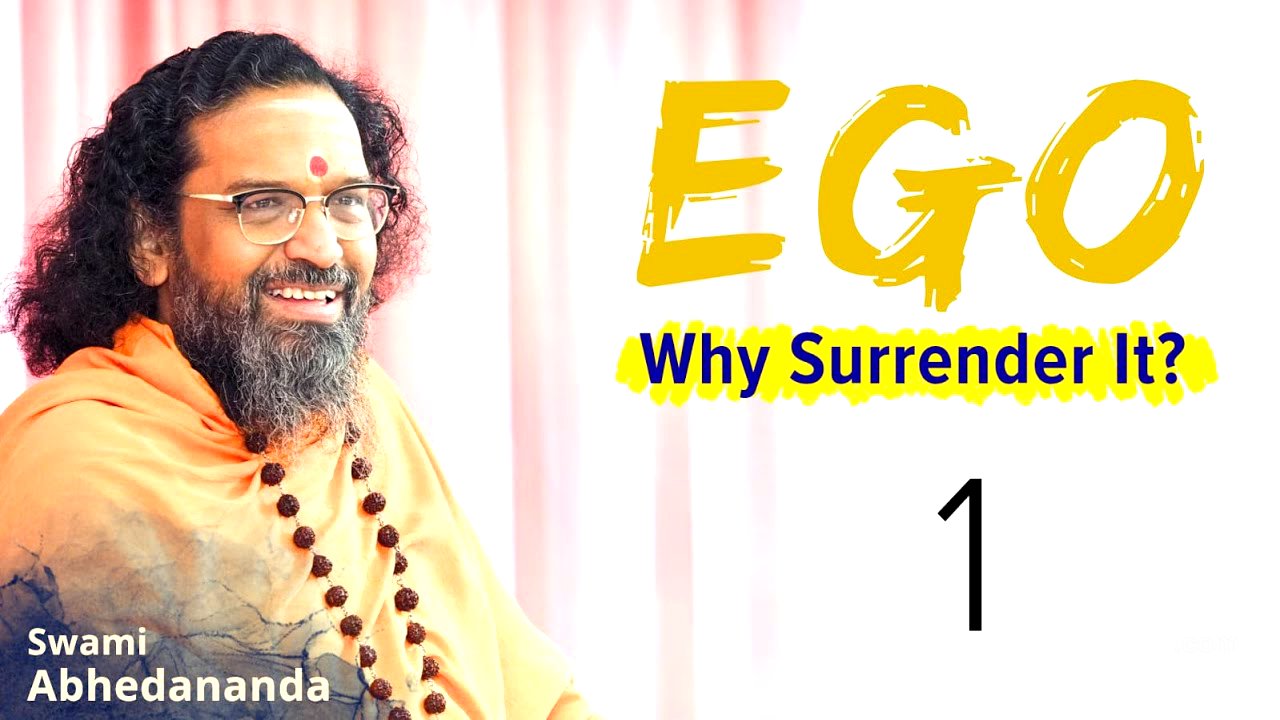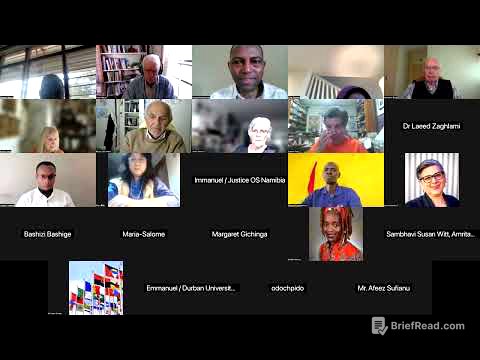TLDR;
This YouTube video by Chinmaya Mission South Africa features devotional music and a discourse on Vedanta philosophy. The speaker discusses the nature of sorrow, destiny, desire, and the ego, emphasizing the importance of surrendering to God's will and recognizing the divine within oneself and others. The talk also touches on the story of Vishwamitra and Lord Ram from the Ramayana, illustrating key concepts with anecdotes and humor.
- The nature of sorrow and destiny
- The ego, desires and surrender to God
- The story of Vishwamitra and Lord Ram from the Ramayana
Devotional Music [0:05]
The video begins with a series of devotional chants and music dedicated to various deities, including Ganesha, Saraswati, Shiva, and Rama. These chants invoke blessings, wisdom, and devotion, setting a spiritual tone for the discourse that follows.
Vedanta Philosophy: Sorrow, Destiny, and Desire [9:35]
The speaker explains Vedanta's perspective that sorrow is not inherent in the world but arises from our desires and expectations. He introduces the concept of destiny (prarabdha) and how our wishes often conflict with it, leading to discontentment. The speaker emphasizes that relationships often start well because we initially accept our destiny, but problems arise when our desires increase and others cannot fulfill them.
The Ego and Separate Identity [16:43]
The discourse shifts to the topic of ego, described as a separate identity with unique desires and a sense of self-importance. The speaker explains that ego prevents us from merging with the system or recognizing God's will. He stresses the importance of surrendering our separate desires and aligning ourselves with God's plan, using the analogy of a music teacher guiding a student to produce a harmonious note.
Surrender and God's Will [19:25]
The speaker elaborates on surrendering to God's will, explaining that it involves interpreting life and situations as God would. He uses examples such as following a doctor's orders or adhering to rules in a university or on an airplane to illustrate the necessity of surrendering to a system for a greater purpose. The key is to align our desires with God's knowledge, joy, and desire, rather than maintaining a separate identity.
The Joy of Uniqueness vs. Merging with the System [36:51]
The speaker contrasts the "joy of uniqueness" (ego) with the importance of merging into a system or community. He explains that every organ in the body works for a common goal, and similarly, individuals should contribute to the greater good. He announces that the following day's discussion will involve the story of Dhanush Bhang from the Ramcharitmanas to further illustrate these concepts.
Vishwamitra and the Nature of Goodness [40:55]
The speaker begins to narrate the story of Vishwamitra from the Ramayana, focusing on the sage's concern about demons disrupting his yagya (sacrificial ritual). He explains that Vishwamitra felt he needed divine assistance to overcome these obstacles. The speaker then transitions into a discussion about the dangers of goodness when it is accompanied by ego.
The Dangers of Goodness with Ego [44:23]
The speaker warns that goodness combined with ego can be dangerous. He describes a person who is outwardly virtuous but uses their good deeds to feel superior to others. He emphasizes that true surrender involves recognizing that all our abilities and virtues are gifts from God and that a day will come when we may not be able to perform them.
Duraasha: The Evil Desire [51:00]
The speaker introduces the concept of "Duraasha" (evil desire), which arises from goodness. He explains that when we do something good, we often develop expectations and a sense of superiority. He uses examples such as expecting others to follow our virtuous habits or feeling frustrated when they don't.
Ishwar and Gratitude [55:41]
The speaker emphasizes the need for Ishwar (God) to temper our goodness. When we are grateful to God, we don't seek external validation or appreciation for our good deeds. The joy we derive from our spiritual practices, devotion, and surrender is enough.
The Story of Vishwamitra Continues [57:20]
Returning to the story of Vishwamitra, the speaker highlights that if you are enjoying something, it means God has sent you there. The joy that you wanted, you got it, you don't need that I somebody should say that brother you had gone to listen to the satsang.
Expectation and Living in the World [1:00:05]
The speaker explains that expectation is a different way of living in the world. You find out who can give how much. If you can give this much then ask for only this much.
Mind, Intellect, Chitta, and Ego [1:00:57]
The speaker explains that ego gets expressed in mind, expectations, inertia in intellect and not to give up on our point in ego and not to be drawn towards God in the mind and all these things will be taken care of by Lord Ram in this journey to Janakpuri.
Love and Separation from God [1:01:21]
The speaker explains that the soul is different and love is different. Sita is different, Ram is different. The separation of Ram and Sita is a cause of problem in our life. Sita ji is the manifested love of Lord Ram.
Vishwamitra's Arrival in Janakpuri [1:04:35]
The speaker describes Vishwamitra's arrival in Janakpuri, where he is greeted with respect by King Janaka and his sons. Vishwamitra's eyes are drawn to the beauty of Ram, and he becomes engrossed in looking at him.
Seeing God in Others [1:08:35]
The speaker encourages the audience to practice seeing God in others so that their hearts may become quiet. He reminds them of all the blessings God has bestowed upon them and encourages them to appreciate these gifts.
Dashrath and Vishwamitra [1:11:36]
The speaker narrates the conversation between Dashrath and Vishwamitra, where the sage asks for Ram and Lakshman to accompany him. Dashrath is initially hesitant but eventually agrees.
The Journey with God and Goodness [1:18:03]
The speaker explains that God came with goodness. Surrender comes when you feel that God has done some big work for you. Love happens only when someone has done some work for us.
Recognizing God [1:19:48]
The speaker explains that to recognize means to have seen it somewhere and recognized it. Knowing is different from recognizing. The feeling of belongingness comes only when someone saves you a lot.
Conclusion and Aarti Announcement [1:21:07]
The speaker concludes by reiterating that with the happiness of such a great God, the happiness of chanting, and the happiness of meditation, we do not need anything from anyone. He announces the morning class schedule, including meditation and aarti.









